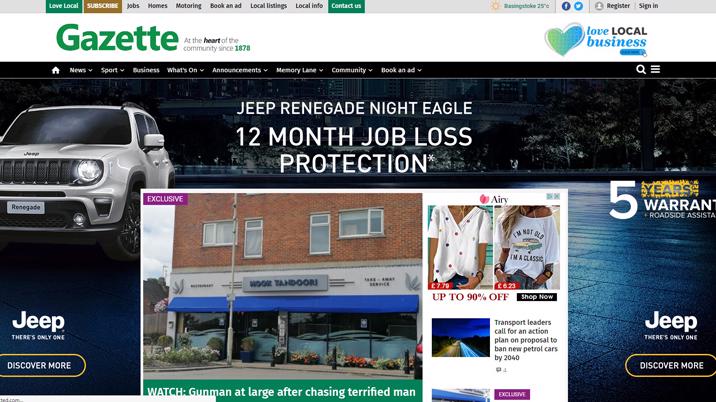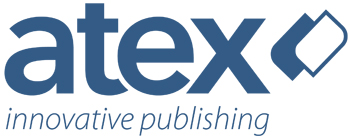
In April 2019, the 140 year old Basingstoke Gazette was in the doldrums.
Newspaper sales, which had been 25,813 in 2000 had shrunk to 6,232 by 2018, at which point Newsquest decided that enough was enough and pulled all its titles, including the Gazette, out of the ABC.
An educated guess would put the April 2019 circulation figure in the 5k region, whilst the publishers reported 430,000 visitors to its website that month.
Despite this disparity in numbers, the newspaper was still a print-first operation. Getting the newspaper out each week was the newsroom’s primary objective and stories were assessed in the context of print deadlines and layouts. Energy levels reflected the print cycle; frenetic activity in the lead up to press day, followed by quiet afterwards, a cycle repeated weekly.
Depending on when a story arrived into the newsroom, it could therefore be up to seven days before the good people of Basingstoke knew anything about it, although the reality is that they probably did know, but were getting their news not from the Gazette but from Facebook. Being second with the news is not a good place for a local newspaper to be.

Into the mix stepped an energetic young editor, Katie French, who had cut her journalistic teeth editing the student newspaper at Plymouth University, where she had ruffled feathers by highlighting university disability cuts. Told by the powers that be to take the story down or face dismissal, she refused. Whilst at Plymouth, her reputation was further enhanced when in 2014, she helped organise ‘The Naked Debate: are boobs really news!’ where four guest speakers discussed whether or not the Sun should ditch its page 3 topless model. (Incidentally, Yes: 64%; No: 22%; unsure: 14%. For the record, the Sun stopped publishing topless pictures in the paper in January 2015.)
After graduating, Katie worked in local press in Devon before stints at MailOnline and the Telegraph, her experience on the nationals teaching her “how to lead a conversation and how to tap into what your readers are interested in”.
Since joining the Gazette in July 2019, she has led from the front. During the general election, she had a well-publicised run in with the Lib Dems over campaign literature that masqueraded as a local newspaper. She has also crossed swords with the Hampshire Police over their very annoying habit of stonewalling press enquiries from journalists but then effectively scooping them the next minute, by tweeting out the subject of the enquiry. More recently, Katie co-ordinated Newsquest’s national Guardian Angels appeal, which by the end of June, had topped £500k.
The result is a re-energized newsroom, with the press day buzz now lasting all week long.
Journalism-first
But apart from maintaining an admirably high profile, the biggest difference she has made has been away from the spotlight, when she quietly switched the Gazette’s publishing strategy from ‘print-first’ to ‘digital-first’. She actually prefers to call it ‘journalism-first’ because the emphasis is on the story, not on how and when it’s going to be published. The logic was simple, follow the audience, and as the numbers make clear, more people now read the Gazette digitally than in print.
From then on, Gazette journalists were freed from the constraints of print deadlines and encouraged to pursue and publish stories as they found them. The newspaper could “fill itself”.
"My strategy from the beginning has been to focus on good, old-fashioned journalism in the setting of a rolling news environment. Our newsroom (or virtual one currently) is open seven days a week. If a story breaks at midnight on Monday, we will be covering it,” said Katie.
The result is a re-energized newsroom, with the press day buzz now lasting all week long.
One journalist told Katie afterwards that they had been planning to leave but had changed their mind. With the changes she had introduced, the newsroom now had the vigour of a daily, which of course, in a sense, it now was.
The result? Traffic to the Basingstoke Gazette website has soared by almost 300% year-on-year, with 1.7m pageviews reported in April.
Now the challenge for the Gazette, along with every other regional newspaper, is how to monetise that increased traffic. The reason why the paper had been print-first was because that was still the primary revenue driver, but the downward trend in newspaper sales makes that unsustainable. Newspapers must find ways of making money from digital, from both readers and advertisers.
As part of Newsquest’s recently announced digital subscription strategy, being rolled out across many of its larger titles, the Basingstoke Gazette has now introduced a registration wall. Once registered, a visitor can access 40 free articles per month before they are prompted to subscribe for £1 a week.
On the ads side, they are collecting data like it has gone out of fashion. When I visited the site in July, I was hit with all sorts of blocking surveys asking me everything from whether I was married / vegan / planning to buy a car or go on holiday. What this approach does to the site’s bounce rate is something I’m sure we’ll never find out, but it shows a concerted effort to profile visitors to boost ad revenues.
Boosting digital revenues is key to the regionals’ future. As Katie wrote in a letter to readers on 8th May: “The harsh reality is unless the public starts to pay for the trusted local news we provide, our industry is at risk of dying out… High-quality journalism comes at a price. We hope you agree professional and trusted news is worth every penny.”
The fact that those words were crafted by Newsquest HQ and replicated across dozens of other Newsquest sites the same day doesn’t make them any less true.

You can hear Katie French being interviewed by Ciar Byrne on a recent episode of The InPublishing Podcast, which was sponsored by Atex, a provider of software solutions for the media industry.
This article was first published in InPublishing magazine. If you would like to be added to the free mailing list, please register here.












